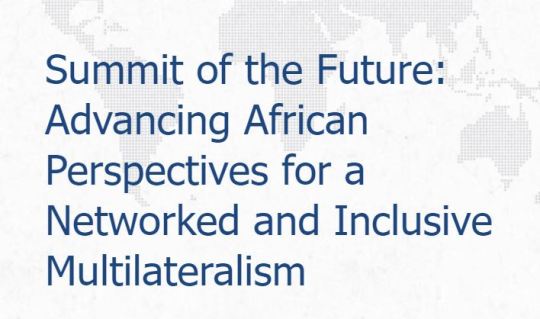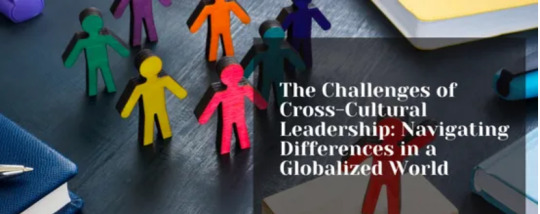#inclusive leaders
Text
In today's rapidly evolving world, fostering diversity, equity, and inclusion (DEI) isn't just a nice-to-have; it's a business imperative. Companies that embrace DEI as a fundamental part of their organizational culture tend to be more innovative, resilient, and competitive. In this blog, we'll delve into the essentials of creating a robust Diversity Equity Inclusion strategy that can transform your workplace into an inclusive and thriving environment for all.
0 notes
Text
What are Some Major Benefits of Diversity and Inclusion Training?
If you are looking for some efficient approaches to boost the well-being of your workers and thus enhance the efficiency of your organization, one of the necessary steps you can take is to execute diversity and inclusion training. Every organization has distinct needs and will consequently have diverse learning goals.
There can be a comprehensive range of reasons that compel companies to opt for Diversity and Inclusion Training but eventually, to support teams performing together efficiently, everyone must feel they are being treated equitably.
An Educated Staff. The major goal of this training is to just notify and familiarize your employees, improve their cultural awareness, and equip them with the skills that are required to collaborate with others and climb the ladder of success.
A Larger Talent Pool. It is a rock-breaking task to discover the right people who have the essential personality, skills, and motivation to do what the job needs effectively. Barring potential hires due to factors such as sex or religion vastly reduces the number of available candidates.
Lure Like-Minded Employees. Devoting to diversity will draw individuals who emphasize highly valued qualities, such as justice, justice, and equity. They will get to comprehend Empathy and Diversity.

Evade Legal Issues. Sustaining a dedication to diversity and inclusion reduces the possibility that your employees will feel victimized against to the extent that they are compelled to opt for a lawsuit.
Better Decision Making. Diversity among your employees assures a comprehensive assortment of perspectives and experiences, permitting everyone to contribute to any decision-making.
Better Problem-Solving. Augmented diversity can cause distress as people get vulnerable to things they generally would not be, and this is fine. Such awkwardness motivates group members to recognize and actively diffuse the tension, which yields better problem-solving.
More Creative Thinking. When people face new things, they must rethink their beliefs. Rather than being stagnated by convention, they work to come up with the new, and authentic opinions.
Resolves Biases and Prejudice. Once these issues are resolved, you can take some initiative toward convalescence. Diversity and inclusion training offers a haven, supportive place for people to confront their prejudices and bias properly. Inclusive Leaders allow individuals to feel unburdened when it comes to bringing their real selves to the workplace.
Decrease Workplace Harassment. Teaching employees to acknowledge their behaviour and how it influences others helps to avert the occurrence of harassment and dispute.
More Content Employees. Everyone shares a similar desire at a workplace that is to feel acknowledged, welcomed, and valued. Satisfying these needs will leave you with more optimistic, more productive employees.
1 note
·
View note
Text
Okay but when Willow says it will be fine I’ve got you GIRLS even though Boorman and Arik are also walking with them because cuz let’s be real, Kit, Elora, and Jade are the heroes here — that moment just about sums up why I am obsessed with this story.
#willow spoilers#willow#watch willow#willow series#like my whole life i’ve been watching wuest stories#and the girls get rescued or sidelined or used as a punchline#and the lone girl gets to stand there#while the leader says couldn’t have done it without#YOU GUYS#and she’s standing there like#i saved the day assholes#imm all about inclusive language#i say y’all#but fuck it felt good to hear him say#YOU GIRLS
86 notes
·
View notes
Text
Sidious: “When my new apprentice Darth Vader arrives, he will...take care of you.” 😈😤😏
Nute Gunray and the Separatists, who apparently thought that being ‘taken care of’ by a Sith Lord meant something other than being sliced up: “Wow that sounds like fun! We’ll roll out the welcome wagon!” 😄🥳🤩

#Revenge of the Sith is probably my favorite movie of all time#and I watch it religiously#but that bit has started to crack me up#Sidious says it so menacingly too#and Nute is like “oh sure sounds fun! can’t wait to meet him! does he have any allergies because Poggle was gonna make some mini-muffins?”#PACK YOUR BAGS AND GTFO#WHY WOULD YOU NEED TO BE TAKEN CARE OF BY A SITH LORD#THE SITH ARE TYING UP LOOSE ENDS#YOU AND YOUR BROSKIS ARE ALL LOOSE ENDS#JUST A BUNCHA LOOSE ENDS HANGING OUT TOGETHER IN THE SAME ROOM#and I know they aren’t sympathetic characters#but Palps played them and Dooku and Grievous like fiddles#“Clone intelligence has reported that General Greivous is… yeah yeah yeah you just got off a holocall with him ya Loth-snake#(wtf even is “clone intelligence”…are they spies??? they’re the most dubious guys in the galaxy! they all look alike!)#sometimes I think about those deleted scenes where Padmé meets with Separatist leaders#and basically kickstarts the Rebel Alliance#makes me think about if Nute and some of those guys had lived and joined the Alliance…lots of comedic potential#Nute: “I feel like ‘Alliance to Restore the Republic’ isn’t a very inclusive name for our cause. I don’t want to restore the Republic.”#Padmé: “Well we’re gonna have better luck piecing the Republic back together than Count Dooku aren’t we?”#Grievous: *uncontrollable cough-sobbing*#revenge of the sith#darth sidious#anakin skywalker#star wars incorrect quotes#nute gunray
15 notes
·
View notes
Text

Join the Inclusive Leader Group in an insightful exploration of how embracing diversity, fostering equity, and nurturing inclusion within healthcare systems can lead to improved patient outcomes, innovative solutions, and a more compassionate and effective healthcare ecosystem.
To contact us, visit the site: https://inclusiveleadersgroup.com/solutions/healthcare-dedicated/
2 notes
·
View notes
Text
Book of the Day - The Loudest Duck
Book of the Day – The Loudest Duck
Today’s Book of the Day is The Loudest Duck, written by Laura A. Liswood and published in 2009 by Wiley.
Laura Liswood is Secretary General of the Council of Women World Leaders, which is composed of 72 women presidents, prime ministers, and heads of government. which she co-founded in August 1996 with President Vigdís Finnbogadóttir of Iceland.She is an internationally recognized speaker,…

View On WordPress
#background#Book#Book Of The Day#book recommendation#book review#book suggestions#books#Business#business coach#business consulting#Coaching#companies#consulting#Council of Women World Leaders#culture#different cultures#Employees#enterprise#Iceland#inclusion#Laura Liswood#managers#The Loudest Duck#Vigdís Finnbogadóttir#Wiley
2 notes
·
View notes
Note
i just saw the fatal love series and i’m excited 🤩 i had something of the sort in mind ages ago, but i was one too nervous to do it and two never really watched half the stories so i scratched the idea. i can’t wait to read these! 🧡
yoooo this is sick omg... hi
yeah i hesitated for so long on even posting the masterlist since I'm working fic by fic. mainly because the commitment of writing a story per member is A LOT. it's insane
this is so cool coming from you because you're a super cool monsta x writer!!! I've been saving your stuff lately to add to my recs blog when i get time & when i can actually dive into reading your works. like I'm stunned that you sent me this ask LMAO
#bearseokie.inbox#fatal love era was so long ago#also I can't believe more fanfiction didn't come from the concept???#there's so much to go off of#also yeah I'm in the same boat as the only seeing like 5/7 movies#i could hardly sit through american psycho + I've only played the hitman game instead of seeing the movie LOL#also i hate the movie drive <3 i only watched it to write the series also bc oscar isaac is in it barkbarkbark#but i love changkyun and i WILL enjoy writing his fic i already know it#iibonniee#rip to my old per member series for got7 we salute you#every time i get a series idea my brain goes anddd we have another round of writer's block !!!#monsta x fanfic royalty? in my inbox?#crazy#no seriously i cannot believe you're in my inbox#I've been trying SO hard to find time to read new monsta x fanfics and yours have been at the top of my list#banger after banger#forgot to mention that since i still made the choice to keep wonho in the series to be inclusive#i made his story magic mike which has nothing to do with anything and also the story is nothing like the movies#I'm a dummy who just wants to think about wonho as the leader of a male strip club who also does CRIME#fatallove.discussion
2 notes
·
View notes
Text
youtube
Active Ally: Why the Allyship Journal? #1 Tough Convos
Tough conversations push you to grow and find more of yourself and others to love. Let the Allyship Journal be your comprehensive, thought provoking guide on your personal journey this year.
Clarify your intentions, identify new found abilities, and outline future goals. Reflect and plan so you know what actions to take nex
The Allyship Journal is the perfect companion to take you on a journey of tough conversations with yourself.
Visit Now!
#Live Training#Live Retreats#Unconscious Bias#Cultural Competence#Cultural Diversity#Global Citizen#Cultural Awareness#Diversity Equity Inclusion#Power Skills#Leader Skills#Cultural Communication#Youtube
0 notes
Text

#lichrally an issue in my city looool#this exact convo did happen with a community leader#his response was basically “yeah but gay men want a place to feel safe”#like. ok. look you can have an inclusive space. or you can have an exclusive space. you cant have it both ways.
1 note
·
View note
Text
In a world that is becoming increasingly aware of the importance of diversity and inclusion, racial equity training has emerged as a critical tool in addressing systemic inequalities. This article aims to provide a comprehensive understanding of racial equity training, its significance, and how it can make a positive impact on organizations and society as a whole. IntroductionRacial equity training has gained prominence in recent years as society grapples with deeply ingrained racial disparities and injustices. This training offers a path toward a more equitable future, but what exactly is it, and why is it essential?
0 notes
Text
Raven Solomon | Leading Your Parents | 25 Rules to Effective Multigenerational Leadership for Millennials & Gen Z
Young professionals entering the workforce today need to be prepared to lead not just their peers, but cross-generational teams consisting of everyone from Gen Zers to Baby Boomers. And the reality is college doesn’t teach the soft skills necessary to do it.
Raven Solomon
This book does.
In Leading Your Parents, Raven Solomon, an entrepreneur, keynote speaker, and former executive manager who…

View On WordPress
#author#black#DEI#diversity#emotional intelligence#equity#Gen Z#generations#inclusion#inclusive leadership#leader#leadership#Leading Your Parents#management#multi-generational team#racial equity#Raven Solomon#systemic racism
0 notes
Text
#CarlosMenem#Argentina#President#Politician#Leader#Legacy#RIP#RememberingCarlosMenem#Anillaco#BuenosAires#History#LatinAmerica#Peronism#Peronist#Economist#Reformer#Modernizer#Peace#Unity#Progress#Innovation#Inclusion#Diversity#Democracy#SocialJustice#HumanRights#InternationalRelations#SouthAmerica#Farewell#Condolences
0 notes
Text
Exploring Lima: Peru Tours to Machu Picchu with Alpaca Expeditions

Embark on an unforgettable journey with Lima Peru tours to Machu Picchu where the ancient mysteries of the Inca Empire await. With Machu Picchu as the crowning jewel, Alpaca Expeditions offers immersive experiences that blend cultural immersion with breathtaking landscapes. Traverse the vibrant streets of Lima, savoring its culinary delights and rich history, before embarking on a scenic train ride to the iconic citadel nestled amidst the Andes Mountains. Our expert guides lead you through the mystical ruins, unveiling the secrets of this UNESCO World Heritage Site while ensuring a sustainable and responsible travel experience. From sunrise hikes to serene moments of reflection, every step of the journey is imbued with wonder and discovery. Join us on a voyage of a lifetime, where the spirit of adventure and exploration knows no bounds.
#machu picchu and lake titicaca tours#private tour machu picchu from cusco#machu picchu trips all inclusive#machu picchu excursions from lima#machu picchu from cusco day trip#best 5 day backpacking trips#trips to peru all inclusive#luxury peru travel#tours from lima to machu picchu#tours machupicchu#travel leaders travel agency#how many days for machu picchu trip
0 notes
Text
youtube
#The Making of a Confident Legal Leader with Ben Grimes | KAJ Masterclass LIVE In the high-stakes world of law#effective leadership is crucial yet often overlooked. Join Ben Grimes#a veteran military attorney and leadership coach#as he shares invaluable insights for lawyers looking to step into partnership roles with confidence. Discover practical strategies to devel#skills#and inclusive culture that define truly impactful legal leaders. Whether you're a rising associate or an experienced partner#this episode offers a roadmap to building a rewarding#purpose-driven practice.
About Ben Grimes:
With a multifaceted career spanning the military#legal practice#and academia#Ben Grimes embodies the power of leadership transformation in the legal profession. A graduate from the United States Military Academy#Ben began his professional life as a UH-60 Blackhawk helicopter pilot and transitioned to become a seasoned and decorated military attorney#legal ethics and professional responsibility#education#and leadership development.
Ben is hired by rising law associates and new partners who are unsure and overwhelmed about how to step into th#mindset#and strategies for them to take charge of themselves#their matters#and their practice so they can have the personally and financially rewarding practice they invested so much time#energy#and sacrifice into building.
Connect here:
https://www.linkedin.com/in/benkgrimes
https://www.bkgleadershipcoaching.com/kajmasterclass.
.#contact us at: [email protected]
**Book host KAJ for speaking engagements#coaching sessions#and more: https://www.thekajmasterclass.live/book-online**#Youtube
0 notes
Text
Advancing African Perspectives for a Networked and Inclusive Multilateralism.

In September 2024, the UN will hold the Summit of the Future in New York, bringing together world leaders to “forge a new international consensus” on how to “deliver a better present and safeguard the future.” One of the outcomes of the summit will be a Pact for the Future covering five key areas: sustainable development and financing for development; international peace and security; science, technology and innovation, and digital cooperation; youth and future generations; and transforming global governance. While the intergovernmental negotiations on the Pact for the Future are meant to be consultative, they could include a broader cross-section of perspectives, including from the African continent.
In this context, IPI and KAS New York hosted a hybrid workshop on February 1, 2024, to gather the perspectives of African states, multilateral institutions, and African civil society organizations on the summit and its outcome. This workshop provided a platform for exchange between member states, the African Union (AU), the UN, civil society organizations, and experts based in Addis Ababa and New York. The workshop was held in Addis Ababa in recognition of the important role of African multilateral institutions such as the AU in contributing to the reform of the international system and reinvigorating global cooperation. The convening aimed to foster a more inclusive and networked multilateralism by providing a platform for African stakeholders and by generating momentum around the summit outside the New York policy space.
The following points emerged as key considerations to ensure that the summit and pact deliver on revitalizing inclusive multilateral cooperation.
Reform of the multilateral system is critical to restore its credibility and legitimacy and will require, at the very least, renewed commitment by member states to the foundational principles of the UN Charter
Reform of the international financial architecture needs to include increasing Africa’s representation in international financial institutions and ensuring that Africa benefits from its own resources.
International peace and security need to be underpinned by a broader toolbox for responding to conflicts and crises, a deeper AU–UN partnership, and greater representation for Africa on the Security Council.
Reparations and historical justice should be the foundation of efforts to advance peace and development and meaningful reform of the multilateral system.
Africa’s engagement in the summit should include active participation by African civil society organizations and academics in support of member states to advance key priorities for the continent.
Monitoring and evaluation will be needed after the summit to hold member states accountable for delivering on their commitments and implementing outcomes.
#historical justice#Monitoring & evaluation#multilateral world#multilateralism#Africa’s engagement#AU–UN partnership#u.n. charter#world leaders#summit of the future#pact for the future#inclusive multilateralism#financial architecture
0 notes
Text
Strategies for Effective Cross-Cultural Leadership.
In today’s interconnected and globalized business environment, cross-cultural leadership has become increasingly important. As companies expand their operations across borders and cultures, leaders must navigate a diverse array of, values, and communication styles. While diversity can bring valuable perspectives and insights to the table, it also presents unique challenges that require careful consideration and adept leadership. In this article, we’ll explore some of the key challenges of cross-cultural leadership and strategies for effectively navigating cultural differences in the workplace.

Understanding Cultural Differences: One of the first challenges of cross-cultural leadership is understanding and appreciating the diversity of cultural perspectives and practices. Cultures vary widely in terms of communication styles, decision-making processes, attitudes toward authority, and approaches to conflict resolution. What may be considered appropriate or effective in one culture may be perceived very differently in another. For example, while direct communication may be valued in some cultures, others may prefer more indirect and diplomatic communication styles.
Navigating Communication Barriers: Communication barriers are another significant challenge of cross-cultural leadership. Language differences, cultural nuances, and nonverbal cues can all impact the effectiveness of communication across cultures. Misunderstandings and misinterpretations are common when communication styles clash, leading to confusion, frustration, and breakdowns in collaboration. Leaders must be sensitive to these differences and adapt their communication style to accommodate the needs and preferences of diverse team members.
Managing Conflicting Values and Beliefs: Cultural differences in values, beliefs, and work ethics can also pose challenges for cross-cultural leaders. For example, attitudes toward hierarchy, individualism versus collectivism, and the importance of work-life balance can vary widely across cultures. These differences can lead to conflicts and tensions within multicultural teams, as team members may have different priorities and expectations. Effective leaders must be skilled at managing these conflicts, fostering mutual respect, and finding common ground that aligns with the organization’s goals and values.
Building Trust and Collaboration: Building trust and collaboration across cultural boundaries is essential for effective cross-cultural leadership. Trust is the foundation of successful teamwork, and it takes time to develop, especially in multicultural settings where cultural differences may breed skepticism or uncertainty. Leaders must invest time and effort in building relationships, demonstrating empathy, and fostering open and transparent communication to build trust and promote collaboration among team members.
Addressing Unconscious Bias: Unconscious bias is another challenge that cross-cultural leaders must address. Everyone has unconscious biases based on their cultural upbringing, experiences, and societal influences, which can impact their perceptions and decision-making processes. These biases can manifest in subtle ways, such as favoritism toward individuals from one’s own culture or assumptions about others’ abilities based on stereotypes. Leaders must be vigilant about recognizing and addressing their own biases and creating an inclusive and equitable work environment where all team members feel valued and respected.
Strategies for Effective Cross-Cultural Leadership
Despite the challenges, there are several strategies that cross-cultural leaders can employ to navigate cultural differences and lead effectively in diverse environments:
Cultivate Cultural Intelligence: Cultural intelligence, or the ability to understand and adapt to different cultural contexts, is essential for cross-cultural leadership. Leaders should invest in developing their cultural awareness, sensitivity, and empathy to effectively engage with diverse team members and stakeholders.
Foster Inclusive Leadership: Inclusive leadership involves valuing and leveraging diversity, creating a sense of belonging, and promoting equitable opportunities for all team members. Leaders should actively seek input from diverse perspectives, challenge assumptions, and create a culture of inclusion where everyone feels valued and respected.
Adapt Communication Styles: Effective communication is key to bridging cultural differences. Leaders should adapt their communication style to accommodate the needs and preferences of diverse team members, using clear and concise language, active listening, and nonverbal cues to enhance understanding and collaboration.
Lead by Example: Leaders must model inclusive behaviors and cultural competence in their actions and decisions. By demonstrating openness, respect, and curiosity toward different cultures, leaders can set the tone for inclusive and collaborative teamwork across cultural boundaries.
Provide Cultural Sensitivity Training: Organizations can support cross-cultural leadership by providing cultural sensitivity training and resources for leaders and employees. These programs can help raise awareness of cultural differences, promote empathy and understanding, and equip team members with the skills and knowledge they need to work effectively in multicultural environments.
Seek Feedback and Reflection: Cross-cultural leaders should actively seek feedback from team members and stakeholders to understand their perspectives and experiences. Reflecting on one’s own cultural biases and assumptions can help leaders identify areas for growth and development and enhance their effectiveness in leading diverse teams.
In conclusion, cross-cultural leadership presents unique challenges and opportunities in today’s globalized world. By understanding and appreciating cultural differences, adapting communication styles, fostering trust and collaboration, and promoting inclusive leadership practices, leaders can effectively navigate cultural boundaries and lead diverse teams to success.
#cross-cultural leadership#challenges and opportunities#cultural differences#communication styles#trust and collaboration#inclusive leadership practices#cultural boundaries#cultural leaders#cultural norms
0 notes